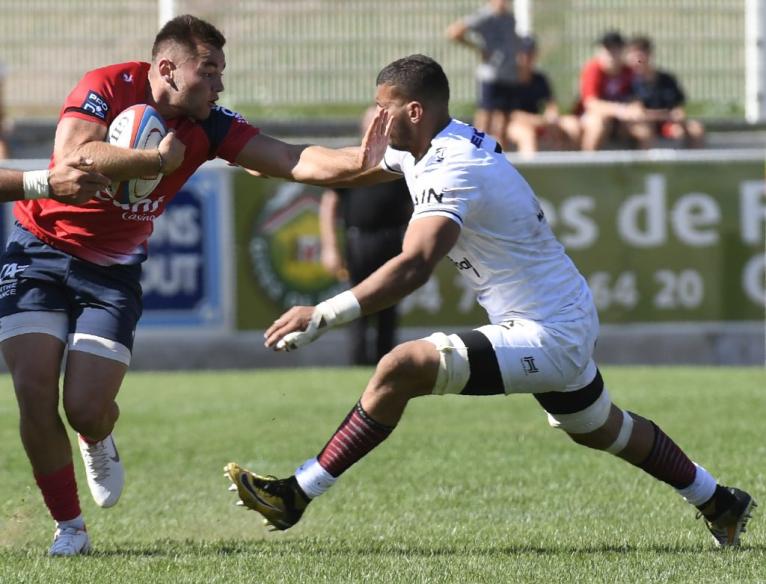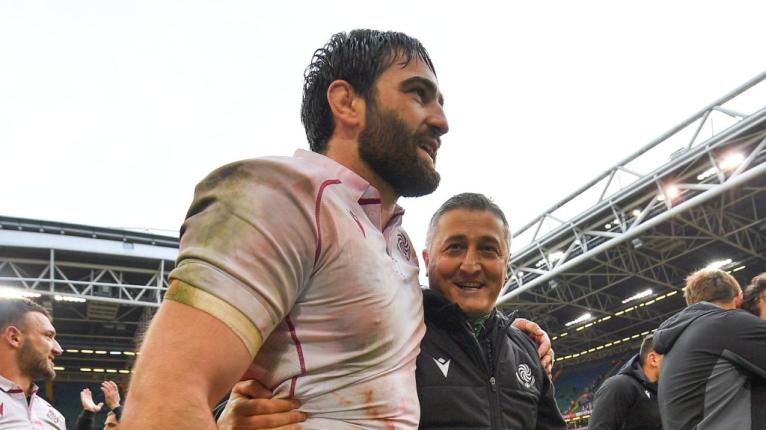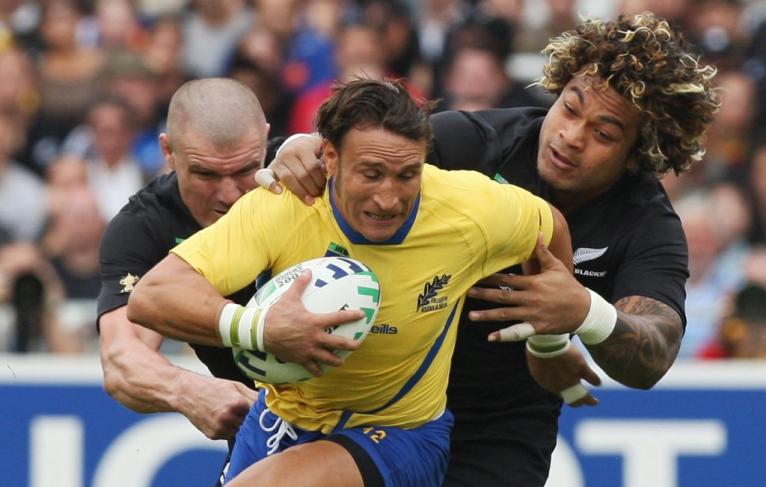A whopping 23 emerging nations players have run out for Stade Aurillacois Cantal Auvergne in the ProD2 this season, making them the club which has invested most in those from rugby’s lesser-known hotbeds.
For the past five seasons, French clubs have been on the lookout for the next Davit Niniashvili, Raffaele Storti or Adrian Motoc, and Aurillac is at the forefront of unearthing those gems. But how does it work?
“It’s difficult for a club like Aurillac to get the best French players, even in the Under-18s,” the club’s sporting director Walter Olombel tells RugbyPass. “We are a small city with no university, just 30,000 inhabitants, and our budget isn’t as big as the others.

“Ten years ago, we made the decision to start scouting young players from countries such as Georgia, Netherlands, Zimbabwe and Spain, as they are only looking for a good academy structure that can help them progress. They are motivated to work as hard as any professional player and have an astonishing competitive spirit.
“As we help them grow, they will assist us not only by playing their hearts out for Aurillac but also by spreading the word we are a good club to work with. We can’t recruit the best 25-year-old player, but we can get the best U18s and by doing that consistently, our academy and clubs keep growing.”
This strategy has helped the players in question rise to greater things. Beka Saghinadze, for example, is an Aurillac poster boy. The Georgian loose forward joined the club from his homeland in 2018 and grew into an outstanding international enforcer, before being snapped up by Top 14 heavyweights Lyon.
“Of course, some of them dream of moving on and playing in Top1 4, and we have no problems with that,” Olombel goes on.
“They arrived young here, progressed, became senior players, and are now doing well in the Top 14. This the only logical way for us to keep playing in the ProD2 and have a sustainable pro status.”

This left-field approach has helped Aurillac preserve its second-tier status, and fight to finish in the top half of the division.
“Since the game turned pro [in 1995], only once we were relegated, have managed to stay in the ProD2 for a long time, and even went to the Top 14 when it was Top 16 for two seasons,” Olombel says.
“We can’t say we don’t want to win promotion, even if we probably get relegated immediately after, as it will attract more funds, fans and investment. Still, our main concern is to build a well-structured project, and not go down a crazy route of hiring players just to conceal gaps and issues. The main concern is to become more efficient and creative when finding young players that can grow with us.”
The framework has worked wonders in other sports, particularly Arsene Wenger’s Arsenal around the turn of the millennium and Barcelona under the great Pep Guardiola. It’s a Moneyball-esque blueprint, focused on discovering youngsters overlooked by others or yet to blossom, players hungry for the chance to show their wares and whose growth will boost the club’s quest for the Top 14.
Look below the senior squad, and the fruits of Aurillac’s toil are spectacular. They offer tantalising snapshots of future potential. In 2022, the espoirs defeated mighty Toulouse to win the French game’s premier academy trophy. They claimed scalp after scalp along the way, beating Clermont, Perpignan and Bordeaux-Bègles, many of whom bore the cream of national age-grade talent.
“These teams had France Under-20 internationals, while most of our players were not well known to the public,” Olombel stresses. “From that team, four players signed their pro contracts in 2022-23, and 11 played their first game in the ProD2. This season another eight will sign their first pro contracts, and 14 have played at least one game for Aurillac’s top side.
“When we start next season, we will have almost 20 former 2022 Espoirs champions with a pro pathway with us, which tells you our idea is to build a team around that generation, and on future ones.”

If we leave aside national franchises and leading clubs such as the Georgian Black Lion or Germany’s SC Frankfurt, no side has supplied more players than Aurillac to the Rugby Europe Championship. Seven of their squad are involved during the second-division international tournament. In the long run, Aurillac’s success may be intertwined with that of the Netherlands, Georgia, Romania, and even Zimbabwe as they strive to climb the ladder.
Nonetheless, there are risks for these nations. French rugby has long been awash with stories of players pressured by their paymasters to eschew Test honours and stick with their clubs. But for now, Aurillac has been a reliable partner.
“We have thankfully built good relationships with coaches and staff from different countries, like the Netherlands,” Olombel explains. “We debate the best way to improve a player.
“There’s no secret behind our scouting or the way we do things, except one: we look for those who will grab the opportunity and won’t let go. Let me give you an idea: we try to give more freedom of movement and thought to the players. Yes, we coach and talk to them, but our idea is to provide sufficient tools for their growth without always being on top of them.
“Autonomy is vital for us. Autonomy and the human factor, that’s our approach. Our coaching staff is 100% passionate for Aurillac, because they played or grown here [like head coach Romeo Gontineac for instance, a Romanian legend who played in four World Cups], and will do everything they can to improve the club.
“One of the problems in the Top 14 and ProD2 is how a chunk of coaches don’t give a proper chance to an espoir player, and it becomes a roadblock for their development. That doesn’t happen in Aurillac.”
This is a romantic tale for any rugby fan who sees no borders or limits in the sport. Aurillac’s efforts to find young prospects in less prestigious countries, invest time and coaching in them, help them adapt to life in France, shows a refreshingly positive side of the professional game. A real liberté, égalité, et fraternité vibe.


Excellent…!